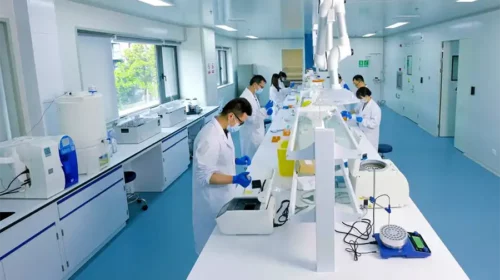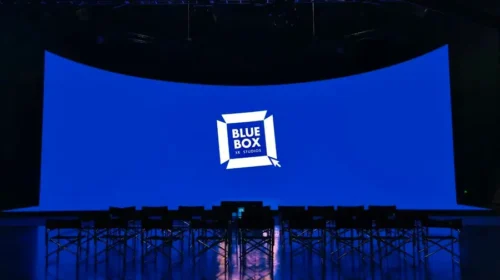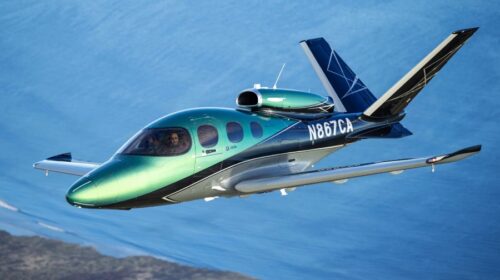Biocytogen Unleashes Legions of High-Tech Mice to Lure IPO Investors

The major provider of gene-edited lab rodents gets the nod for a Hong Kong listing after abandoning a plan to float shares on Shanghai’s STAR Market
Key Takeaways:
- Gene-edited lab mice provider Biocytogen has passed a listing hearing in Hong Kong, with plans to raise $50 million
- The company operates RenMice, a proprietary platform for genetic mouse modification, and is expanding into antibody drug development
By Emily Chan
They send most people scurrying, but mice have found an unlikely patron in China’s Biocytogen Pharmaceuticals (Beijing) Co. Ltd., which has passed a listing for a Hong Kong IPO. Though perhaps the furry little rodents wouldn’t see it that way.
Biocytogen has made a small fortune by riding China’s boom in new drug development over the last few years. That’s driving up demand for lab animals such as rats and monkeys, as well as the mice that are the company’s bread-and-butter.
Despite its relatively unusual business model, Biocytogen isn’t the first of its kind from China to take its lab to financial markets. Two other companies, GemPharmatech Co. Ltd. (688046.SH) and Shanghai Model Organisms Center (688265.SH), are already listed on Shanghai’s Nasdaq-style STAR Market. That pair, along with Biocytogen, have been dubbed as China’s “big three” providers of lab animals.
In addition to its traditional business of selling gene-edited laboratory mice, Biocytogen is also exploring developing its own drugs, in this case antibody drugs, hoping to share a piece of the pie as a manufacturer in the emerging new drug class.
Biocytogen reportedly wanted to list on the Shanghai STAR Market and even signed a listing counseling agreement with an investment bank in February last year, according to media reports. But it later gave up the plan and turned its sights to Hong Kong. Following its approval for a Hong Kong listing last week, Biocytogen has launched a pre-IPO roadshow to gauge investor interest and is expected to raise approximately $50 million.
The company’s main businesses are preclinical research services and drug development. The former fall into its core business of raising and selling lab mice, and include gene editing services, preclinical pharmacological efficacy assessment and actual animal sales; the latter include development of antibody and innovative biological drugs.
According to the company’s preliminary prospectus, funds from the IPO will be used for the clinical development of two new drugs: YH003 for ductal adenocarcinoma of the pancreas, melanoma and other advanced solid tumors; and YH001 for hepatocellular carcinoma, non-small cell lung cancer and other solid tumors. Some funding will also support the company’s Project Integrum, a large-scale antibody screening program, and preclinical and clinical development of other pipeline products.
Cash burner
Like the vast majority of China’s drug-related startups, Biocytogen has been losing money for years despite strong revenue growth. Its revenue rose from 254 million yuan ($37.6 million) in 2020 to 355 million yuan last year, and was on track to grow further still with 117 million yuan in sales for the first four months of this year. But it spent a hefty 1.05 billion yuan on R&D over that time, resulting in a loss of 477 million yuan in 2020, which grew to 546 million yuan last year.
Within its preclinical research division, gene editing services generated 51 million yuan last year, preclinical pharmacology and efficacy evaluation brought in 106 million yuan and lab animal sales brought in 108 million yuan, collectively accounting for 74.5% of total revenue.
The remainder came from the faster-growing antibody development business, whose revenue jumped 115.6% to 89 million yuan last year. With a high gross margin of 80.3% and the high growth rate, it’s not difficult to see why the company is putting big resources into expanding that side of the business.
Biocytogen was founded in 2009 by Shen Yuelei, a foreign-educated Chinese immunologist who made his first fortune by providing gene-edited mice. Over the following years the company transformed into a supplier of gene-edited lab animals and added contract research organization (CRO) services providing preclinical research services in 2015. In 2016 the company started to build an antibody drug R&D team for preclinical and clinical development of candidates for its antibody drug discovery platform.
It wasn’t until 2019 that Biocytogen successfully developed its mouse-based RenMice model for the development of human antibodies, after which it started to transform into a biotech and innovative drug developer.
In 2021, Biocytogen’s revenue from the sale of lab animals increased by 63.1%, accounting for over 30% of total revenue. That part of its business is centered around lab mice that are genetically edited to carry functional human genes, cells, immune systems, tissues or organs for use in biomedical research and the development of clinical treatment options. According to the preliminary prospectus, the unit price of a 4- to 8-week-old humanized lab mouse ranged from 1,300 yuan to 4,700 yuan last year.
In 2019, the company released RenMab, a fully human antibody model mouse that substitutes a typical mouse’s antibody genes with human antibody gene sequences that can be used to generate fully human antibodies. At the same time, the company uses target humanized mice for efficacy tests and to eventually make cell lines with antibodies that are efficacious in vivo to produce protein.
Biocytogen subsequently released RenLite mice for bispecific antibody development and RenNano mice for nanobody development, and completed the building of RenMice, a platform for fully human antibody mice.
Mouse milestone
Launched in March 2020, the company’s Project Integrum is an important milestone in the development of antibody drugs that can be manufactured in large volumes using the company’s technology. The goal is to use these gene-edited mice to develop therapeutic antibodies by knocking out thousands of potential antibody targets in RenMice over a three- to five-year period.
The program has seen Biocytogen build a pipeline of 12 antibody candidates, including five clinical-stage candidates like the previously mentioned YH001 and YH003. During the development process, the company has earned revenue through license-out collaborations with domestic and international pharmaceutical companies.
But it’s worth noting that Biocytogen’s 12 drug candidates are also being developing by other pharmaceutical companies, and many believe that only the first company to market will make a good profit.
Given the relatively unique nature of Biocytogen’s business, we can try to calculate its valuation using price-to-sales (P/S) ratios for GemPharmatech and Shanghai Model Organisms Center, as well as antibody drug manufacturer Regeneron Pharmaceuticals (REGN.US), which vary a bit with ratios of 27 times, 12.6 times and 5.1 times, respectively.
A projection of 352 million yuan in revenue for Biocytogen this year, extrapolated from its first four-month figure, and an average P/S ratio of 14.9 times for its three peers, would give Biocytogen an estimated 5.25 billion yuan valuation, which is about 33% lower than the 7.81 billion yuan figure it attained at the time of its last financing last year. Such a discount could reflect the impact of ebbing enthusiasm for biotech stocks over the past year.
To subscribe to Bamboo Works weekly free newsletter, click here






